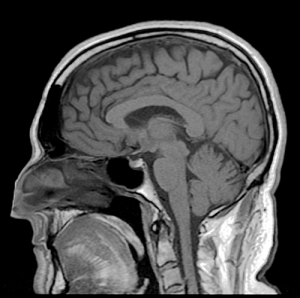Researchers at the Tohoku University have recently discovered that weak connections in specific parts of the brain are connected to the incidence of post-traumatic stress disorder. The study will be able to help predict if a person is susceptible to PTSD just by looking at scans of a brain.
The scientists compared information from men and women who experienced the Japanese earthquake of 2011. Before the earthquake, the researchers had already scanned the students’ brains. This way, the researchers could compare the brain’s white matter before and after the traumatic event. The white matter is responsible for the connections and communication between various regions of the brain.
According to the researchers, “participants who had weak connections in the front, right section of the brain before the disaster were more likely to have high levels of anxiety after the earthquake hit.”
The new discovery will be able to help predict PTSD. Dr. Atsushi Sekiguchi, a researcher at the university, believes that the study will help the military predict “PTSD vulnerabilities” before the deployment of troops.
More research is needed before scans of the brain can predict PTSD. According to Sekiguchi, scientists now have to figure out the “threshold” that would mark a person as susceptible to PTSD. The study’s results can help prevent PTSD in the future by identifying people with PTSD vulnerabilities.
What do you think about this discovery?



biorob
Great post! I agree with what explodingllama342 is saying about Post Traumatic Stree Disorder. While the disorder can affect everyone, a good example of experiencing the disorder is with soldiers coming back from war. I found this article that said 10-18 percent of soldiers will experience the disorder. Soldiers may feel out of place in the society that they are coming back to. The soldiers may feel more comfortable in combat. I think that the Japanese earthquake is another example of how PTSD can affect people. I think it is great the MRI machines will be able to give us information that we may not know.
http://www.npr.org/2011/06/02/136895807/the-profound-daily-struggle-of-soldiers-with-ptsd
explodingllama342
This is very interesting. I actually read a book recently, called On Killing by Lt. Col. Dave Grossman that talked about PTSD and combat. Apparently, 98% of troops will experience it, and the 2% that do no are either sociopaths or had a previously existing psychiatric condition such as depression or OCD.
This TIME article talks about how deployment can actually help PTSD. http://healthland.time.com/2012/11/16/why-war-helps-rather-than-harms-some-with-ptsd/
According to the article “some soldiers with a history of trauma report feeling better during deployment: their “symptoms” are potentially useful during combat. Rather than debilitating them, they help them become better soldiers” because they are more aware of their surroundings and vigilant. Of course, in the civilian world, this is called paranoia and is seen as a condition that needs treatment. Regardless of whether it helps or hurts in combat, it definitely hurts when soldier come back to civilian life and this research is critical to helping them cope, especially since suicide rates among veterans are so high.
saysquad
This is an amazing article! I never knew that you could predict an illness of the brain by using an MRI machine. Anyways, there are many different different theories on the cause(s) of PTSD. However, there are not as many as to why PTSD is more prevalent now then it ever was before. In my English class this week, because we are currently reading the Aeneid, which is about war/full of fighting, the topic of PTSD came up. One student, argued that PTSD was not common, at all, back in the ancient times. She believed to be true because of story telling, and the down time at the end of the day. All of the story telling was a form of “Physiologic debriefing”, which helps prevent disorders like PTSD. Nowadays, soldiers down have down time. They are not able to sit around a camp fire, and share stories with their comrades. For more information, see the link below:
http://ajp.psychiatryonline.org/article.aspx?articleID=175501
hannahbanana
This is a great discovery. If this test is too late and you know someone suffering or who may be suffering from PTSD check out this site for some help…http://maketheconnection.net/conditions/ptsd?gclid=CMGM2ajv07MCFQqe4Aod2gcALA I hope this can help many.
dwil
This is a great discovery. Any breakthrough that can help predict a severe illness is a great one. By using a simple MRI or other scanner scientists can now accurately predict post traumatic stress disorder. While the breakthrough can’t actually find out exactly if a person will have the disease, it can show who is susceptible. This will allow for appropriate precautions to be made and can definitely help physiologists who work with the patients. Here is an example of a prior way to test for PTSD.
http://www.mayoclinic.com/health/post-traumatic-stress-disorder/DS00246/DSECTION=tests-and-diagnosis